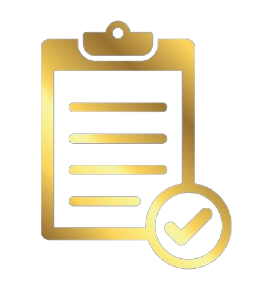Deseree
Chase-Grady
Real Estate Expert in California
- She's known for her market knowledge, tech skills, and strong negotiating. She’s driven to close deals.
Overview
Whether you’re looking for your first home, dream home, or investment property, we’re committed to providing you with the highest quality buyer service. When making the type of investment that buying a home requires, you deserve to have all the latest market information and the best advice, both of which we can provide. Buying a home is an exciting and complex adventure. It can also be very time-consuming and costly if you’re not familiar with all aspects of the process and don’t have all the best information and resources.
One of our specialties is representing the best interests of Atlanta area buyers throughout the home-buying process. Our comprehensive, high-quality services can save you time and money and make the experience more enjoyable and less stressful. If you’re like most people, buying a home is the most significant investment you will ever make. So whether you’re buying a starter home, your dream home, or an investment property, why not take advantage of our experience as a local market expert for Atlanta to make the most informed decisions you can every step of the way? Contact one of our team members today!
Agent Information
- Agent License: 01797914
- Service Areas: Miami, Fort Lauderdale, West Palm Beach, Coral Gables
- Specialties: Property management, Real estate development, Real estate appraising, Retail leasing, Apartment brokerage
- Call: 310-634-5664
- Work:(424) 732-7272
Newsletter Sign up
Extensive Local Knowledge
We are experts in local areas. Our team knows the streets like the firemen and our GPS. With this local knowledge, we will:
- Get acquainted with every neighborhood in your price range.
- Help you identify the areas you are not as fond of.
- Focus on the areas you like.
- Provide you with useful local knowledge, and help you understand the local market conditions.
- Take you to see potential homes as soon as possible
Expert Negotiation
Our expert negotiation strategies have helped buyers buy their homes at the best possible price. Most of our buyer transactions are multiple offers, and we’re proud of our high success rate in representing clients. Our team will:
- Advise you on how to write an impressive, compelling offer.
- Strategize when competing with multiple offers.
- Separate your offer from everyone else’s.
- Ensure your offer is presented.
- Get your home at the best possible price.
Reputation
Whom you choose to represent you is incredibly crucial not only for you but also for the competitive market. We have a good reputation among our clients. Also, our relationships with our colleagues are long-standing, which helps our clients in buying and selling their homes.
- Treat colleagues as colleagues, not competitors.
- Keep a small clientele in order to provide the very best service.
- Our clients know they are receiving the best possible attention and service.
- On average, our clients see less than ten homes before purchasing.

Our team is passionate about real estate and dedicated to our clients; whether it’s a place to live, building a business, climbing the corporate ladder, or being an entrepreneur, we are committed to your why.
Please use this website as a resource for all your mortgage and Real Estate needs. If you have any additional questions, don’t hesitate to contact the expert who can provide exceptional results.
Words To Know
Mortgage Loan
A loan offered by a bank, mortgage company, or other financial institution for the purchase of a primary or investment residence. In a home mortgage, the owner of the property (the borrower) transfers the title to the lender on the condition that the title will be transferred back to the owner once the loan has been fully paid and all other terms of the mortgage have been met.
Borrower:
The person borrowing the mortgage money either has or is creating an ownership interest in the property.
Lender:
Any organization lending the mortgage money, but usually a bank or other financial institution (Lenders may also be investors who own an interest in the mortgage through a mortgage-backed security. In such a situation, the initial lender is known as the mortgage originator, which then packages and sells the loan to investors. The payments from the borrower are thereafter collected by a loan servicer.).
Principal:
The original dollar amount of the loan, which may or may not include certain other costs; as any principal is repaid, the principal amount will decrease.
Interest:
A financial charge for the use of the lender’s money.
Mortgage Loan Types
The two basic types of amortized loans are fixed-rate mortgages (FRM) and adjustable-rate mortgages (ARM) (also known as floating-rate or variable-rate mortgages).
In a fixed-rate mortgage, the interest rate remains fixed for the loan’s life (or term). In an annuity repayment scheme, the periodic payment remains the same throughout the loan. In linear payback, the periodic payment gradually decreases.
In an adjustable-rate mortgage, the interest rate is generally fixed for a period of time, after which it will periodically (for example, annually or monthly) adjust up or down in relation to a market index.
Adjustable rates transfer part of the interest rate risk from the lender to the borrower and thus are widely used where fixed-rate funding is difficult to obtain or prohibitively expensive. Since the risk is transferred to the borrower, the initial interest rate may be, for example, 0.5% to 2% lower than the average 30-year fixed rate; the size of the price differential will be related to debt market conditions, including the yield curve.
Affordability Calculator
Use this calculator to determine how much house you can afford. By entering details about your income, down payment, and monthly debts, you can estimate the mortgage amount that works with your budget.
Mortgage Calculator
- Down Payment
- Loan Amount
- Monthly Mortgage Payment
- Property Tax
- Home Insurance
- PMI
- Monthly HOA Fees
Affordability Help
Annual Income
This is the combined annual income for you and your co-borrower. Include all income before taxes, including base salary, commissions, bonuses, overtime, tips, rental income, investment income, alimony, child support, etc.
Down Payment
The typical rule of thumb is to pay 20 percent of the home’s price as your down payment, although some mortgage loans require as little as 3.5 percent down. Your down payment reduces the total amount of your mortgage loan, so the more money you put down, the lower your payments will be – or the more expensive a house you can buy.
Other Monthly Debts
Include all monthly debt payments for you and your co-borrower, including minimum monthly required credit card payments, car payments, student loan payments, alimony/child support payments, any house payments (rent or mortgage) other than the new mortgage you are seeking, rental property maintenance, and other personal loans with periodic payments.
Do NOT include credit card balances you pay off in full each month, existing house payments (rent or mortgage) that will become obsolete as a result of the new mortgage you’re seeking or the new mortgage you’re seeking.
Loan Term
Your loan program can affect your interest rate and monthly payments. Choose from 30-year fixed, 15-year fixed, and more in the calculator.
Loan Type
There are several types of mortgage loans, but the most commonly used are fixed-rate and adjustable-rate loans. Fixed-rate loans have the same interest rate for the entire duration of the loan. That means your monthly payment will be the same, even for long-term loans, such as 30-year fixed-rate mortgages. Two benefits to this loan type are stability and being able to calculate your total interest up front. Adjustable-rate mortgages (ARMs) have interest rates that can change over time. Typically they start out at a lower interest rate than a fixed-rate loan and hold that rate for a set number of years before changing interest rates from year to year. For example, if you have a 5/1 ARM, you will have the same interest rate for the first 5 years, and then your interest rate will change from year to year. The main benefit of an adjustable-rate loan is starting off with a lower interest rate.
Interest Rate
This field is pre-filled with the current average mortgage rate. Your actual rate will vary based on factors like credit score and down payment.
Property Tax
The mortgage payment calculator includes estimated property taxes based on the home’s value. You can edit this in the advanced options.
Home Insurance
Home insurance or homeowners insurance is typically required by lenders, depending on the loan program. You can edit this number in the mortgage calculator’s advanced options.
HOA Fees
A homeowners association fee (HOA fee) is an amount of money that must be paid monthly by owners of certain types of residential properties, and HOAs collect these fees to assist with maintaining and improving properties in the association.
Debt-to-Income (DTI)
Your DTI is expressed as a percentage and is your total “minimum” monthly debt divided by your gross monthly income. The conventional limit for DTI is 36% of your monthly income, but this could be as high as 41% for FHA loans. A DTI of 20% or below is considered excellent.
Get your Finances in Order
Before you even begin to start saving properties and calling agents, you have to get your finances in order. That begins with cleaning up old debts, improving your credit score, and building up healthy savings to put down a 20% down payment if at all possible. Get this done first.
At the very least, most banks will require 5% down. Just know that lenders will typically require you to pay private mortgage insurance (PMI) if your down payment is less than 20%.
Once you have your financial ducks in a row, it’s time to start preparing for the house hunt. The first step is actually going to a bank and getting pre-approved for a home loan.
- Keep in mind that pre-approval and pre-qualification are two different things:
- Pre-Qualification: This process will tell you how much you can afford for a home.
- Pre-Approval: This process will tell you how much the bank has approved you for a home.
Knowing exactly how much you are approved for can help you stay within your budget. When budgeting for your home purchase, don’t forget to include other costs that will arise like:
- Inspection
- Repairs
- Closing Cost
- Contingencies
- And Other Fees

Financial Overview

Getting Started

Shop For A Loan

Know The Numbers

Get Pre-Approved

Application & Processing

Funding
 Getting Started
Getting Started
Getting Started
Start A D. Chase realty Real Estate Purchasing File
This should contain all of your important financial documents. Regardless of the loan type, lenders will need information about you. Make copies of financial statements; bank accounts, investments, credit cards, auto loans, recent pay stubs and two years’ tax returns.
Check Your Credit Rating
Credit scores range between 400 and 800. 620 + is considered “good”. 680 + is considered “premium” and may possibly help get you a lower interest rate.
Below you will find the contact information for the 3 major credit reporting agencies to help you determine your credit rating. Ask your lender how to improve your credit score if you need to. Going forward, treat your credit like gold.
Equifax | (800) 685-1111 | |
Experian | (800) 392-1122 | |
Trans Union | (800) 888-4213 |
Savings & Debt
If you are buying real estate, try to accumulate funds towards your down payment, closing costs (appraisal, miscellaneous fees, escrow, title insurance, etc.), and expenses such as inspections. Furthermore, try to pay down existing revolving and high-interest rate debt like credit cards.
Toe The Line
Now is not a good time to change careers, move your money around, or buy big-ticket items. Lenders like stability. So if you are considering any major changes, it pays to meet with a lender and ask them how to proceed before you make any changes! If you are tempted to buy a big-ticket item, consider the following:
A $500 a month debt payment (like a credit card or auto loan) could lower the amount of home you can afford by about $83,000!*
* Based on a 30-year mortgage at 6% interest.
Shop For A Loan
 Shop For A Loan
Shop For A Loan
How to Find a Lender
Today, lenders can be found through a variety of sources. In addition to calling on ads in the newspaper, you can also find and apply to lenders over the internet and through referrals from your REALTOR. We would be happy to suggest lenders we have used successfully who have proven themselves competitive and capable even with problem properties or poor credit.
Choosing the Right Lender
Interview several lenders to evaluate the following:
- Ability to explain things clearly and return your phone calls in a reasonable time period
- Competitiveness of interest rates, costs & fees.
- Availability of loan programs that suit your credit profile and desired property
- Access to local loan approval committee that understands the kind of property you are buying
Choosing the Right Kind of Loan
Today there are so many types of loans on the market that it is beyond the scope of this page to list or explain them all. Your lender is the best person to help you select a loan program to suit your needs. Below is a summary of the three most popular loan types we see in practice; for more detailed information, click the link at the end of this page.
- Fixed loan:The fixed rate loan assures your monthly payments will stay the same over the life of the loan, which is typically between 15 and 30 years. Fixed-rate loans may be best if you intend to hold the property for a long period of time, say over 7 years.
- ARMs (adjustable rate mortgages):ARMs may be suitable if you plan to sell or refinance your home within the next few years. The starting interest rate is typically lower than a fixed-rate loan, saving you money initially. However, it is important to understand the index, the readjustment interval, the capitalization rate, and the downside risks of an ARM before making a final decision to use this type of loan.
- Intermediate ARMs:Also called Hybrid Loans, these loans can offer fixed interest rates for the first 3, 5, 7, or 10 years, after which the interest rate adjusts with the market every 6 months or year thereafter.
KNOW THE NUMBERS
 KNOW THE NUMBERS
KNOW THE NUMBERS
Credit Report
Typically, it costs under $50 to check your credit. With your permission, the lender will order a review of your outstanding loans and your repayment history from a third-party credit agency.
Application / Processing Fee
This cost, typically a few hundred dollars, is charged to cover the lender’s work to evaluate your ability to repay the loan. Some lenders will credit this back to you upon closing.
What is APR?
The APR, or annual percentage rate, is the sum total of all your borrowing costs expressed as a percentage interest rate charged on the loan balance.
For example: After fees, the original interest rate quote of 5.875% might work out to a 6% APR loan, where the interest costs about $6,000 per year for every $100,000 borrowed, and the principal payments are calculated based on the length of the loan term (for example 15, 20, or 30 years.
Indexes
The interest rates on variable loans readjust periodically based on changes in an index. Typical indexes include the Federal Funds Rate and Treasury Bill.
Points
When mortgage companies are competing by offering lower interest rates, they may charge you a one-time pre-paid interest payment calculated as a percentage of the loan. Called points”, this may range from 0.25% to 2% of the loan balance and is usually paid upfront. Points are tax-deductible; consult with your tax advisor.
Appraisal Cost
Lenders hire experienced, often independent appraisers to evaluate the property’s purchase price, condition, and size compared to similar recent neighborhood sales. This helps ensure the purchase price is not too high and gives the lender more confidence in getting repaid in the event they are forced to sell the property if the borrower defaults. The appraisal costs vary depending on the property, type of appraisal, and region.
Miscellaneous Fees
Expect to see various charges incurred in the processing of your loan, which might include notary, courier, and county recording fees.
Prepayment Penalties
These vary widely, so be sure you know in advance if your lender will charge a penalty if you refinance or sell, and the certain period during which the penalties apply.
Get Pre-Approved
 Get Pre-Approved
Get Pre-Approved
Does it Help to be Pre-Qualified by a Lender?
The pre-qualification process can be completed fairly quickly, based on less information than is required for getting pre-approved. While it is fast and it does help, a pre-qualification letter is an opinion from a lender of the maximum amount of real estate you can qualify for. In a competitive seller’s market, an offer from a buyer with a pre-qualification letter could lose out to a person who is pre-approved.
Get Pre-Approved by a Lender
There are several benefits to going the extra mile and getting a pre-approval letter. First of all, you will know exactly how much real estate you can afford. When you find a property you want to buy, your offer will be in a better positioned than someone less prepared. Finally, being pre-approved is more efficient; it reduces the amount of time it will take your lender to fund your loan. Be prepared to provide comprehensive documentation, which the lender may independently verify, including but not limited to:
- Job and career status
- Income
- Monthly debt payments
- Cash available
- Total assets and debts
Mortgage Brokers and Lenders – Who Does What?
The mortgage broker is the person or company who is your main contact throughout your loan. They are often able to work with a number of lenders, who actually provide the funds for the loan. Typically, the lender pays the mortgage broker a fee for acting as the intermediary and providing all the customer service.
Application and Processing
 Application and Processing
Application and Processing
Filling Out the Application
There are standard forms to be completed when applying for a loan. Some mortgage brokers keep these on their website so you can fill out and submit the forms on line. The information will be verified and used to qualify you for your loan, so take the time to answer questions accurately.
Documentation
The mortgage broker will need copies of the documents you began gathering in the first phase of the loan process, including:
- Either 2 years of W-2 forms from your employer or 2 years of tax returns if you are self-employed
- Recent pay stubs
- 3 months of bank and money market statements
- Brokerage, mutual fund, and retirement account statements
- Proof of other income sources (alimony, trusts, rental income, etc.)
- Credit card statements
- Auto /boat/student / miscellaneous loans
- Driver’s license or form of ID
- If you’re not a US citizen, then a copy of your green card or visa
- Copy of any existing mortgage debts if you are applying for a home equity line of credit or another mortgage
Stay in Communication
The lender will have an analyst, usually called an “underwriter,” crunch your numbers and verify your documentation to confirm your ability to repay the loan. Once you are in contract on a property, there may also be a loan approval committee that will meet to review the underwriters’ conclusions regarding your creditworthiness and to evaluate the property on which they are lending. This is called the underwriting process and questions.
are bound to arise. Be sure to return your mortgage broker’s calls promptly to keep the process moving forward smoothly. Check-in with your broker periodically.
Funding
 Funding
Funding
The Signing
When the lender is ready to “close” your loan or “fund” it, your real estate agent and your mortgage broker will have you sign the final loan documents. Signing will typically take place in front of a notary or an escrow officer. Ask your mortgage broker if there is anything you need to do to prepare for this, such as bringing a photo ID or perhaps a cashier’s check if you are purchasing real estate. Allow yourself enough time to review the documents for accuracy.
If funds are being wired: “Wiring instructions” direct the electronic transfer of money between financial companies. If possible, arrange to have the wiring instructions in place ahead of time and checked for accuracy by both the sender and recipient of the wire. It is critical that these instructions be exact, and even so, delays are all too common.
Congratulations!
Your mortgage broker will probably call you to confirm that the money has been transferred and the loan has closed. Always follow up with a phone call to confirm that your loan funds went where they were supposed to go. It is a good idea to keep records of this critical phase of the transaction once completed
UNDERSTANDING THE BUYER’S PROCESS

Deciding To Buy

Preparing To Buy

Choosing Real Estate Agent

Time To Go Shopping

Escrow Inspection & Appraisals

Moving On
Buying a Home is a big decision that our Team takes seriously. Our goal is to make your decision-making STRESS-FREE.
DECIDING TO BUY
 DECIDING TO BUY
DECIDING TO BUY
Why Do you Want to Buy?
Are you tired of paying rent? Have you decided to pay your own mortgage and not your landlord’s Have you outgrown your current home? Are you looking for an investment portfolio? Are you looking for a rental property? Would you like a large yard? Would you rather live in a different area? Do you want to shorten your commute? Having a clear sense of your reasons for buying will help you choose the right property.
PREPARING TO BUY
 PREPARING TO BUY
PREPARING TO BUY
Before you start shopping for your property, it is a good idea to make some preparations.
Build Your D. Chase Realty Services Purchasing Packet.
This packet contains all your important financial documents. You will need to secure financing for your property. The typical packet should contain:
- Financial Statements
- Bank Accounts
- Investments
- Credit cards
- Auto loans
- Recent pay stubs
- Tax returns for two years
- Copies of leases for investment properties
- 401K statements, life insurance, stocks, bonds, and mutual account information
Check Your Credit Rating
Your credit score will have a huge impact on what type of property you can buy, and at what price. It is first recommended to check your credit rating with an experienced lending institution so that we can determine what you can afford. The lender will research your credit ratings from the three credit reporting agencies Equifax, Experian and Trans Union.
Be Careful With Your Finances.
Now is not a good time to make sudden career changes or large purchases. You want to approach your property purchase from a position of financial stability.
CHOOSING AN AGENT
 CHOOSING AN AGENT
CHOOSING AN AGENT
Buying a property requires making many important financial decisions, understanding complex issues, and completing a lot of paperwork. It helps to have an expert in your corner when undertaking such a large purchase. We can guide you through this process and also provide you with access to property listings before they hit the general market. Here are some factors to consider when choosing your real estate professional.
- Look for a full-time agent – one who has experience completing transactions similar to yours. • Interview a few agents: Are they familiar with the area in which you are interested?
- Ask how much time the agent will have for you, and if they are available at night and on weekends.
- Ask about their credentials and education: A good agent will continually strive to improve and gain knowledge of the latest real estate trends and hold the highest designations in their respective fields of expertise.
- Does the agent return your calls promptly? Time is money when attempting to buy a property.
- Ask for a list of properties they have sold or a list of references
- Choose an agent who listens attentively to your needs and concerns. Pick an agent with whom you feel comfortable.
TIME TO GO SHOPPING
 TIME TO GO SHOPPING
TIME TO GO SHOPPING
Once those preparations are out of the way, it is time to find the right property for you.
Take a Drive.
Get to know the neighborhoods, complexes, or subdivisions that interest you. Drive around and get a feel for what it would be like to own a property in the area. Start getting a sense of the properties available in those areas.
Narrow Your Search
Select a few properties that interest you the most and have your real estate agent make appointments to visit them. Ask your real Estate agent about the potential long-term resale value of the properties you are considering.
Time to Buy
Once you have picked out the property you want to purchase, your real estate agent can help you make an offer that the seller will accept. A good agent will investigate the potential costs and expenses associated with the new property. An agent can also help you draft your offer in a way that gives you the advantage over another offer.
 ESCROW, INSPECTIONS, and APPRAISALS
ESCROW, INSPECTIONS, and APPRAISALS
The Process, Step-by-Step The Initial Agreement and Deposit An effective agreement is a legal arrangement between a potential purchaser and the property’s seller.
Some important tips to keep in mind to streamline the process:
- Keep written records of everything. For the sake of clarity, it will be extremely useful to transcribe all verbal agreements, including counter-offers and addendums, and to convert them into written agreements to be signed by both parties. We will assist you in drafting all the paperwork for your purchases and make sure that you have copies of everything.
- Stick to the schedule. Now that you have chosen your offer, you and the seller will be given a timeline to mark every stage in the process of closing the real estate contract. Meeting the requirements on time ensures a smoother flow of negotiations so that each party involved is not in breach of their agreements. During the process, we will keep you constantly updated, so you will always be prepared for the next step.
The Closing Agent.
Either a title company or an attorney will be selected as a closing agent. The closing agent. The closing agent will hold the deposit in escrow and will research the complete recorded history of the property to ensure that the title is free and clear of encumbrances by the date of closing and that all new encumbrances are properly added to the title. Some properties are subject to restrictions that limit various activities, such as building or parking restrictions. There may be recorded easements and encroachments that limit the rights to use your property.
How To Hold Title.
You may wish to consult an attorney or tax advisor on the best way to hold title. Different methods of holding title have different legal, estate, and tax implications, especially when selling or upon the death of the title holder.
Inspections.
Once the seller accepts your offer, you will need to have a licensed property inspector inspect the property within the time frame that was agreed upon in the effective contract to purchase. You may elect to have different inspections of the property if you wish to obtain professional opinions from inspectors who specialize in a specific area (e.g., roof, HVAC, structure). If you are purchasing a commercial property, then you will need to have an environmental audit done on the site for the lending institution. We can recommend several different inspectors.
Depending on the outcome of these inspections, one of two things may happen.
1. Either each milestone is successfully closed and the contingencies will be removed, bringing you one step closer to the close, or
2. The buyer, after reviewing the property and the papers, requests a renegotiation of the terms of the contract (usually the price).
Appraisal and Lending.
It is important that you keep in close communication with your lender,, who will let you know when additional documents are needed to approve your loan application and fund your loan. If the agreements are conditional upon financing, then the property will be appraised by a licensed appraiser to determine the value for the lending institution, via a third party. This is done so that the lending institution can confirm that its investment in your property is accurate. Appraisers are specialists in determining the value of properties, based on a combination of square footage measurements, building costs, recent sales of comparable properties, operating income, etc. When you are within two weeks of closing, double-check with your lender to be sure the loan will go through smoothly and on time.
Association Approval.
If the property that you are purchasing is conditional upon an association approval, request the rules, regulations, and other important documents from the seller as soon as you have an effective agreement to purchase. Make sure that the application documents and processing fees are submitted to the appropriate person at the association by the required time. Fill out all of the information completely and legibly so there is no delay in processing the application. If you are required to meet with the association for your approval, make an appointment as soon as possible for the interview. Most associations require a certificate of approval before move-in. Your closing agent will request that the original copy of this approval letter be brought to the closing, so that it can be recorded with the deed in the county public records.
Property Insurance.
If you are obtaining a loan, you will be required by your lender to purchase a certain amount of insurance on the property. The value will depend on the lending institution and the purchase price of the property. You may be able to save hundreds of dollars a year on homeowners’ insurance by shopping around for insurance. You can also save money with these tips.
Consider a higher deductible. Increasing your deductible by just a few hundred dollars can make a big difference in your premium.
- Ask your insurance agent about discounts. You may be able to get a lower premium if your home has safety features such as deadbolt locks, smoke detectors, an alarm system, storm shutters, or fire-retardant roofing materials. Persons over 55 years of age or long-term customers may also be offered discounts.
- Insure your house NOT the land under it. After a disaster, the land is still there. If you do not subtract the value of the land when deciding how much homeowner’s insurance to buy, you will pay more than you should. We will be happy to recommend an experienced, knowledgeable insurance agent for every property type.
MOVING IN
 MOVING IN
MOVING IN
Closing Day
If you have come this far, then this means that it is almost time for a congratulations, but not yet. Do not forget to tie up these loose ends: Final Walk-Through Inspection.
More of a formality than anything else, the final inspection takes place a day before or on the day of the closing. You will visit the property to verify that all is in working order, everything is the same as when you last viewed the property, that there are no extra items left behind, and that everything included in your purchase is still at the property.
Home Services and Utilities.
We will provide a list of useful numbers for the activation of home services and utilities after the closing occurs.
Be Prepared. We are ready to assist you should an unforeseen glitch pop up, even at this last stage. Something at the property breaks down, or some other minor detail – no need to worry. We have encountered these problems before, so we know how to handle them efficiently and in a stress-free manner.
Closing.
The closing agent will furnish all parties involved with a settlement statement, which summarizes any details of the financial transactions enacted in the process. You and the seller (s) will sign this statement, as well as the closing agent, certifying its accuracy. If you are obtaining financing, you will have to sign all pertinent documentation required by the lending institution. If you are unable to attend the scheduled closing, arrangements can be made depending on the circumstances and the notice that we receive. If you are bringing funds to the transaction, you can elect to either have the funds wired electronically into the closing agent’s escrow account or bring a certified bank check to the closing in the amount specified on the settlement statement. The seller should arrange to have all property keys and any other important information for you at the closing so that you may receive these items at this time.

 G
G Shop For A Loan
Shop For A Loan KNOW THE NUMBERS
KNOW THE NUMBERS Application and Processing
Application and Processing Funding
Funding DECIDING TO BUY
DECIDING TO BUY CHOOSING AN AGENT
CHOOSING AN AGENT TIME TO GO SHOPPING
TIME TO GO SHOPPING ESCROW, INSPECTIONS, and APPRAISALS
ESCROW, INSPECTIONS, and APPRAISALS MOVING IN
MOVING IN